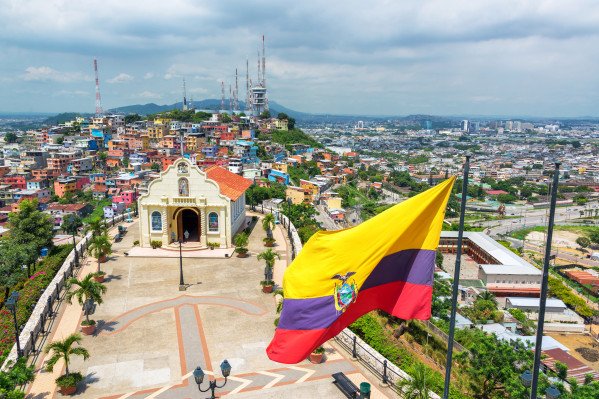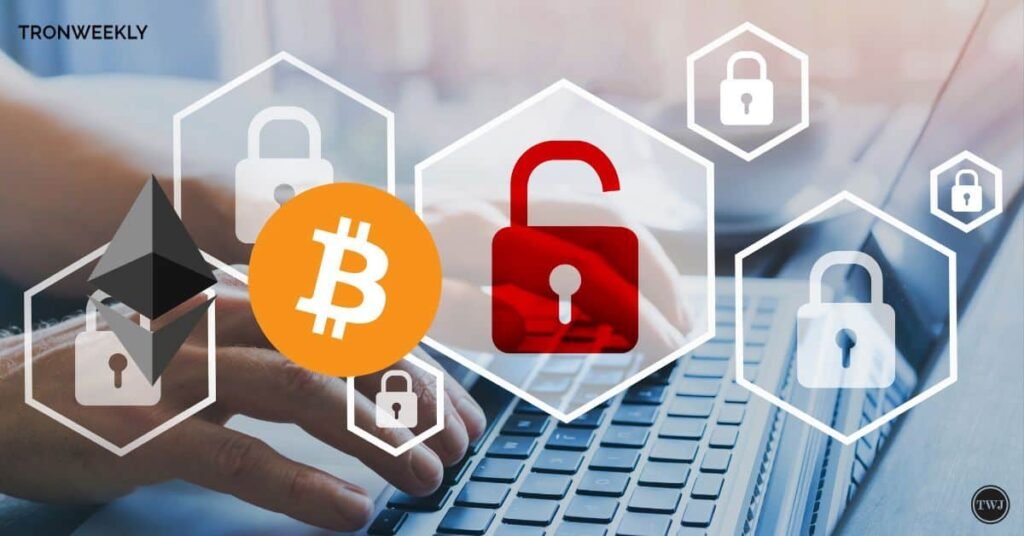In Latin America, the business of trolling threatens Twitter’s disruptive power

In 2012, the emblematic podcast This American Life did a special on politics in Afghanistan. They noted that in order to be a politician in Afghanistan, one needs to command a personal armed militia. That’s how politics is practiced in a fragmented country with a long history of violence, and without a stable, credible centralized authority.
In the quaint and relatively peaceful Andean nation of Ecuador, snuggled between Colombia and Peru, a similar phenomenon takes place: politicians don’t require armed guards, but they do require their digital equivalent: Twitter troll centers, or businesses that sell online harassment as a service.
Indeed, much of the country’s public debate, or lack thereof, is now defined by the anonymous accounts that threaten, cajole and, ultimately, aim to silence voices of dissent. Though Ecuador may be too small to register on the Twitter executive team’s radar, under their noses the lucrative business of weaponizing the platform is already being exported to other countries in the region. The abuse of Twitter through troll centers not only threatens the company’s vision to become the world’s agora, it may also be putting lives at risk.
Imagine a populist president raging against his country’s elites, including the news media, as corrupt enemies of the people. Because of his innate distrust of journalists, he uses Twitter to speak divisive rhetoric directly to his digital faithful. At his disposal is an army of hardcore supporters ready to do his bidding, echo his message and attack anyone who dares disagree. If you recognize the character in this story, it’s probably because you’re familiar with Rafael Correa (56), the populist former president of Ecuador (January 2007- May 2017).
Correa now lives in Belgium and cannot return to Ecuador without facing trial for having ordered the kidnapping of a political opponent. The opponent in question fled Ecuador to neighboring Colombia in 2012, where he was trailed by members of Ecuador’s secret police and briefly kidnapped. Witnesses from the state security apparatus have since come forward to point the finger at Correa as the intellectual author of the crime.
The staunchest defenders of concentrated power are those who hold that power.
Correa denies the charges and claims they are merely politically motivated theater orchestrated by his former mentee and now sworn enemy, current Ecuadorian president, Lenín Moreno. But even if that were the case, Correa still has a number of other uncomfortable questions to answer to the Ecuadorian people. Since 2013, Latin America has been rocked by a corruption scandal called Lava Jato (the car wash) in which the Brazilian construction company Odebrecht paid bribes to politicians across the region to win public works projects (the Netflix series O Mecanismo, or The Mechanism in English, dramatizes the unfolding of the case in Brazil). In total, Odebrecht is said to have paid $788 million U.S. dollars in bribes in 12 countries in exchange for government contracts.
As a result of Lava Jato, former presidents in Brazil and Panama are in jail. In Peru, two former presidents are incarcerated, one is being held prior to an extradition hearing in California and, in April of this year, one dramatically committed suicide when police came to escort him to prison.
Ecuador’s government was no exception to the Brazil construction firm’s corruption: Rafael Correa’s former vice president and preferred successor, Jorge Glas, was convicted in December of 2017 of having directed multi-million-dollar contracts to the Brazilian firm in exchange for massive payoffs hidden through a series of offshore accounts. Indeed, Glas’s poor approval rating was the cause for Correa asking Moreno to come out of retirement and run for president.
Were Lava Jato not enough to spark wide-scale public outrage, a new scandal called Arroz Verde (green rice), revealed in May of 2019, exposed how the Correa election campaigns had government contractors cover expenses in order to flaunt spending restrictions. Numerous former ministers from the Correa government are currently either in jail or awaiting trial, under house arrest or have fled the country. Correa’s legacy as a tough yet modernizing progressive president is currently threatened by corruption scandals of previously unimaginable proportions.
It wasn’t supposed to be that way. When Rafael Correa was elected in 2007, Ecuador was emerging from a period of political, social and economic instability. In 2000, the country’s banks failed and the following economic collapse lead to Ecuador adopting the U.S. dollar as its official currency. Two years prior, a war with neighboring Peru resulted in the loss of a significant portion of Ecuador’s claim to the Amazon rain forest. In the early 2000s, close to 10% of the population, more than a million Ecuadorians, migrated to Spain and the United States in search of work. Three democratically elected presidents in a row were overthrown by street protests, including one colorful actor who was disposed after only six months in office. He was officially declared to have abandoned his role due to mental incapacity.
A relatively obscure leftist economics professor, Correa had a short stint as the country’s finance minister in 2005 during a transitional government. He left his post after a public spat with the International Monetary Fund. The IMF demanded Ecuador use its oil revenues to pay off its staggering external debt. Correa insisted that the country’s first priority should be its social debt and that the monies should be invested in health and education.
The fight vaulted Correa into the public eye and he was able to ride the momentum all the way to the presidency, defeating the country’s richest man in a run-off vote. Through his bombastic rhetoric, Correa took aim at the country’s business, political and media elites and fingered them as the origin of the country’s problems. He captured the populations’ unrest through the campaign slogan Dale Correa, which means both “Go Correa” and “Give ‘Em the Belt!”
Once in office, Rafael Correa set about an aggressive reform agenda. He rewrote the Constitution, the country’s 20th, and re-organized the state apparatus. Fueled by record high oil prices, Correa invested massively in highways, schools, hospitals and much-needed infrastructure like hydroelectric dams.
Shunning the country’s traditional alliance with the United States, Correa turned instead to China, a decision that, as The New York Times has documented, ended in billions of dollars being misspent on Chinese-built hydroelectric dams that don’t actually work at full capacity. In addition, China sold Ecuador technology which, though promoted as a 911 public safety tool, was used by the Correa government to keep tabs on and harass political opponents.
When Americans talk about Donald Trump’s latest scandals, Latin Americans mostly roll their eyes. After all, Latin Americans have seen the Donald Trump character interpreted by numerous strongmen, or caudillos, throughout the region’s history. They have even seen how it plays out on Twitter. Both Venezuela’s late President Hugo Chávez and Rafael Correa saw in Twitter an opportunity to go around their countries’ respective traditional media and speak directly to the citizens, a benefit of social media President Trump has also touted.
Correa would regularly engage in banter with citizens and do the work of government through tweets. His famous expression Favor Atender (please see to this) followed by a mention of a high-level minister or official was his calling card to government to get directly involved in resolving citizen complaints brought to his attention through Twitter. Correa went so far as to host lunches in the presidential palace for the Twitter users who most supported and defended him. The novelty of the hands-on approach soon revealed its dark side.
What happened next is the stuff of Benghazi-like conspiracy theories.
Many historians point to the 30th of September 2010 as the date when Rafael Correa started breaking bad. The day began as any other in the perpetually sunny capital of Quito. As mountain climbers will note, people at high altitudes sometimes make bad decisions due to the thin air, and Ecuador’s capital Quito stands at 9,350 feet. On this day, the National Police declared to the news media they were going on strike to protest a restructuring of their compensation packages. A group of police officers took a regiment and Rafael Correa decided that the best course of action was to go in person and confront them. Surrounded by his handlers and sustaining himself with a cane after a recent knee operation, Correa berated the police officers, ripped his shirt open like a tropical hulk and dared the officers to shoot him in the chest. “Here I am and if you want to kill me, go ahead and kill me!” he cried.
What happened next is the stuff of Benghazi-like conspiracy theories. Depending on who you believe, Correa was either kidnapped and taken to a police hospital or went there voluntarily. The army eventually responded and a shoot-out ensued between the police and the army in the streets of Quito. Five people were killed, including three police officers, a soldier and a citizen. The president was eventually rescued by the military and restored to his functions about 12 hours after the debacle began. In a country used to coups and presidential turnover, democracy seemed to have won.
From the beginning of his time in office, Rafael Correa was determined not to suffer the fate of his overthrown predecessors. Having experienced the potential for that fate up-close, Rafael Correa reacted by removing his tyrannical constraints. Correa became increasingly belligerent on and off Twitter. Notoriously thin-skinned, Correa made a habit of throwing people in jail for flipping him off. He even stopped his motorcade to personally stick his finger in the nose of an irreverent teenager who Correa later had thrown in jail (the young man was eventually freed after apologizing).
Correa continued his crusade against journalists who wro
Be the first to write a comment.







